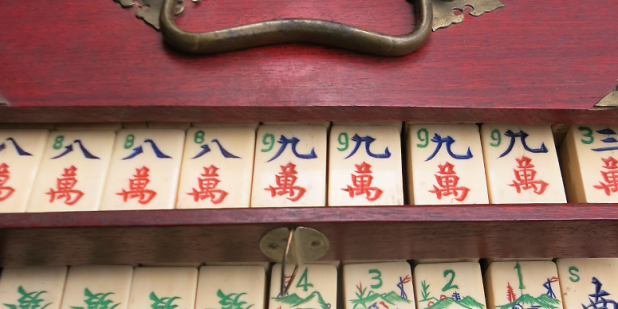Happy Lunar New Year from the USC US-China Institute!
Mahjong: A Chinese Game and the Making of Modern American Culture
Join Annelise Heinz, Assistant Professor of History from the University of Oregon for her lecture on Mahjong and the making of modern American culture.
When:
March 24, 2020 5:30pm to 6:45pm
Where

The USF Center for Asia Pacific Studies welcomes Annelise Heinz, Assistant Professor of History at the University of Oregon to campus to discuss how the Chinese game of mahjong has shaped modern American culture.
In her talk, Professor Heinz explores the American history of the Chinese parlor game mahjong. She charts a complex cultural journey as the game’s history connects American expatriates in Shanghai, Jazz Age white Americans, urban Chinese Americans in the 1930s, incarcerated Japanese Americans in wartime, Jewish American suburban mothers, and Air Force officers’ wives in the postwar era. Her talk follows the history of the game, encouraging us to think about how individuals create and experience cultural change in their daily lives.
Annelise Heinz is a professor of history at the University of Oregon. Based on a decade of research, her book Mahjong: A Chinese Game and the Making of Modern American Culture is forthcoming with Oxford University Press in 2021. Her work has been featured on National Public Radio, the American Historical Review, and international Chinese television. A native of Southern California, Annelise Heinz has lived and played mahjong in all three West Coast states, Texas, and Southwestern China.
Free and open to the public. Seating is first come first served.
Co-Sponsor: MA- Asia Pacific Studies
Featured Articles
January 4, 2024
We note the passing of many prominent individuals who played some role in U.S.-China affairs, whether in politics, economics or in helping people in one place understand the other.
Events
Thursday, March 21, 2024 - 4:00pm PST
Ying Zhu looks at new developments for Chinese and global streaming services.
Tuesday, March 19, 2024 - 4:00pm
David Zweig examines China's talent recruitment efforts, particularly towards those scientists and engineers who left China for further study. U.S. universities, labs and companies have long brought in talent from China. Are such people still welcome?






